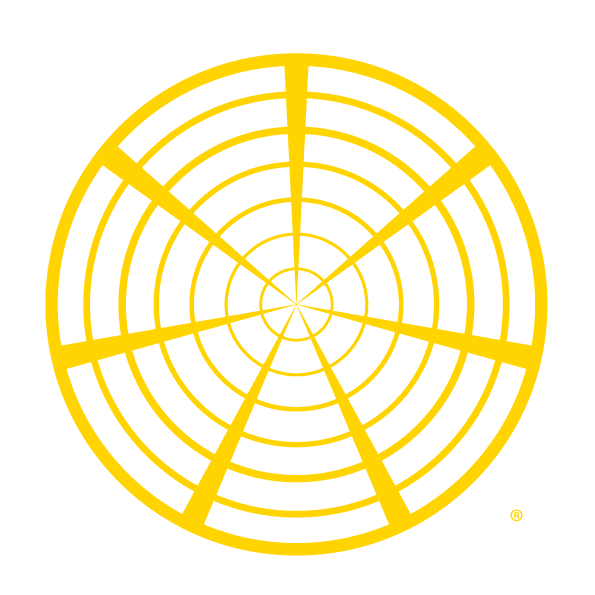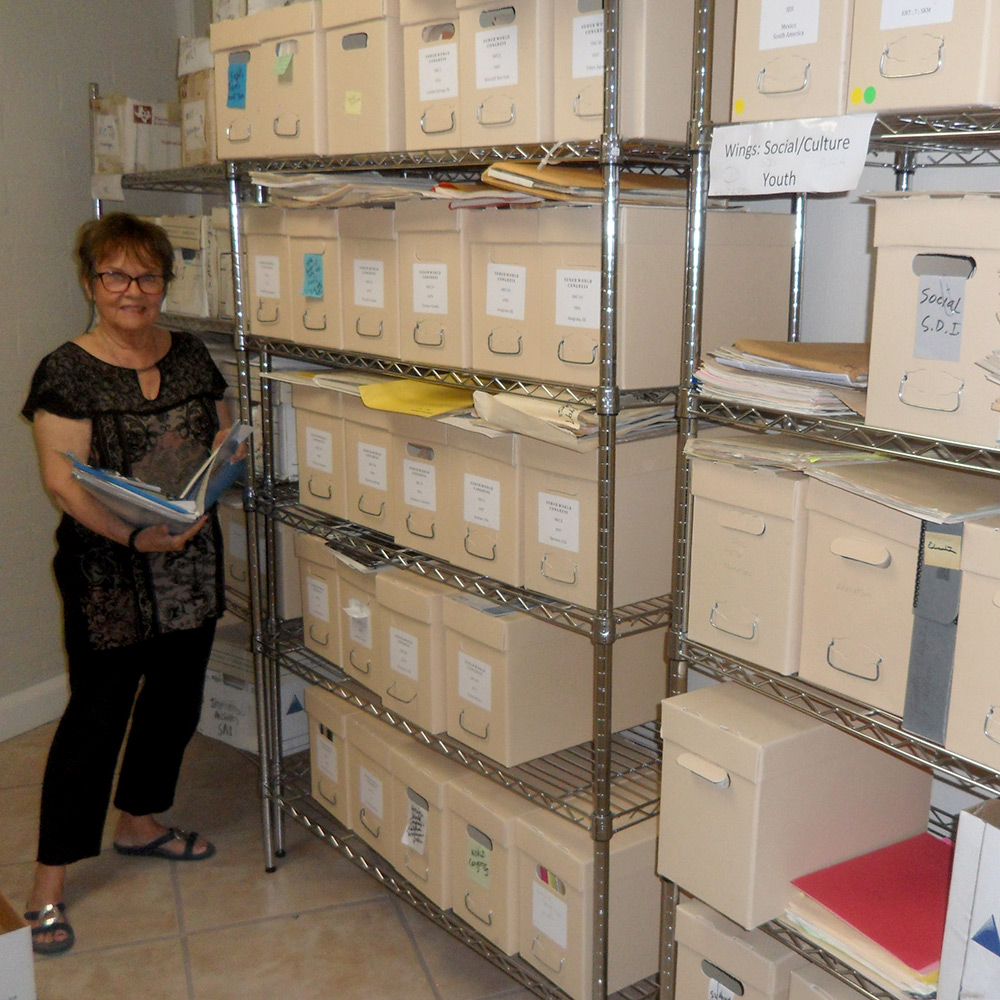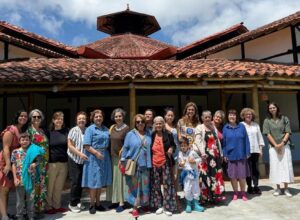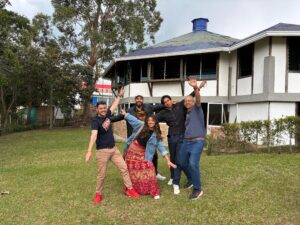The WSA Archives hold large, rich, and precious collections of the works of Bapak and Ibu Siti Rahayu, and of the history and spread of Subud and its organizational development.
A major priority for the coming year will be identifying a digital preservation system to store, catalogue, and provide access to both digitized copies of our physical records and born-digital records, and begin the task of integrating the collections of the WSA Archive Centers.
Objectives
WSA Archives is a service of and reports to the WSA Executive Committee. The mission of the WSA Archives is to collect, manage, and preserve for posterity in their purist form:
- The work of Bapak Muhammad Subud Sumohadiwidojojo, the founder of Subud, in its original form together with the evidential and contextual basis for that work
- The work of Ibu Siti Rahayu Wiryohudoyo in its original form together with the evidential and contextual basis for that work
- Those records give evidence to the historical development of Subud and as normally archived by an organization of global significance
Activities
The WSA has five international Archive Centers:
- Cilandak, Indonesia: This center, located in Wisma Subud, is administered and funded by Yayasan Muhammad Subuh (YMS). The primary collections are the talks, letters, and writings of Bapak and of Ibu Siti Rahayu.
- Canberra, Australia: Funded by the WSA, this center’s collections are focused on the history of the development and spread of Subud, and the key organizational documents of the WSA and its Wings and Affiliates. It is also the location of the digital files of Bapak’s talks from the Memnon Project and the accompanying original audio tapes from the WSA Tape Preservation Unit.
- USA and Britain: These centers hold the national archives of their countries along with important international records. The WSA archivist in the States has established the Subud Archives Online website – wsaarchives.org – to provide members with access to documents, pictures, and audio-visual assets of interest.
- Japan, along with each of the other WSA Archive Centers, holds a set of the early backup archival materials distributed in 1979 and the microfilm distributed in 1993.
- The WSA Archives in the USA, Britain, and Japan are funded by their national Subud organizations.
Achievements
In 2020, the Linear Tape-Open (LTO) archival backup of Bapak’s talks from Canberra was duplicated and prepared in Cilandak for distribution in sets of five LTOs to the WSA Archives in the USA, UK, and Japan in 2021, on completion of the Memoranda of Understanding between WSA and these countries.
The WSA Film collection in Canberra has been digitized with a grant from Subud Australia and reallocated funds from the WSA Archive budget. The WSA Video Collection will be digitized in 2021.
Architectural concept planning for a purpose-built facility for the WSA Archive in Canberra has been completed with the support of a grant from Subud Australia. The estimated costs are USD 1.1 million. This has been presented to the WSA officers and board and to Subud Australia’s National Council, however the next steps are under review due to the impact of the pandemic on Subud finances.
Subud USA has advanced plans for the relocation of the WSA Archive in Phoenix to the Amani Center in Washington DC in 2021. The collections will be inappropriate climate-controlled spaces with room for management of the archives and for viewing by Subud members. This has been brought about by an active team working with the national committee, including the involvement of two of our US-based members of the WSA Archives Subcommittee.
Challenges
The major issues of 2020 can be grouped into three interrelated categories – the inadequacy of (1) financial resources, (2) human resources, and (3) physical resources.
We have large, rich, and precious collections of the works of Bapak and Ibu Siti Rahayu, and of the history and spread of Subud and its organizational development. However, except for the WSA Archive in Cilandak, these collections are currently housed in commercial storage units that are not climate-controlled.
We have just one professionally trained archivist, though other very competent archive managers. The resignation of Amalijah Thomson means the archive in Canberra is inactive and, without adequate facilities and compensation, at this time we have not felt able to recruit a replacement.
Another serious issue is that we do not have a system in place to capture born-digital archival and organizational material and as a result, there are large and growing gaps in our collections. Related to this, we do not have an itemized or comprehensive asset inventory for the different archive centers.
For these reasons, a major priority for the coming year will be identifying a digital preservation system to store, catalogue, and provide access to both digitized copies of our physical records and born-digital records, and begin the task of integrating the collections of the WSA Archive Centers.




